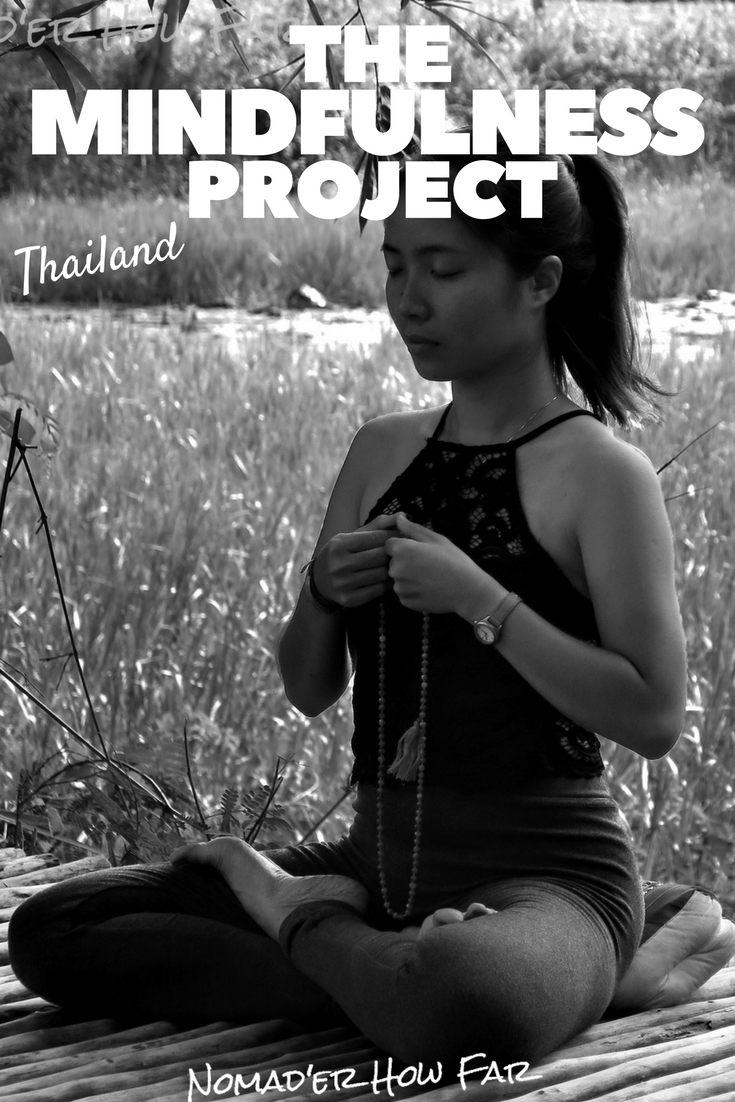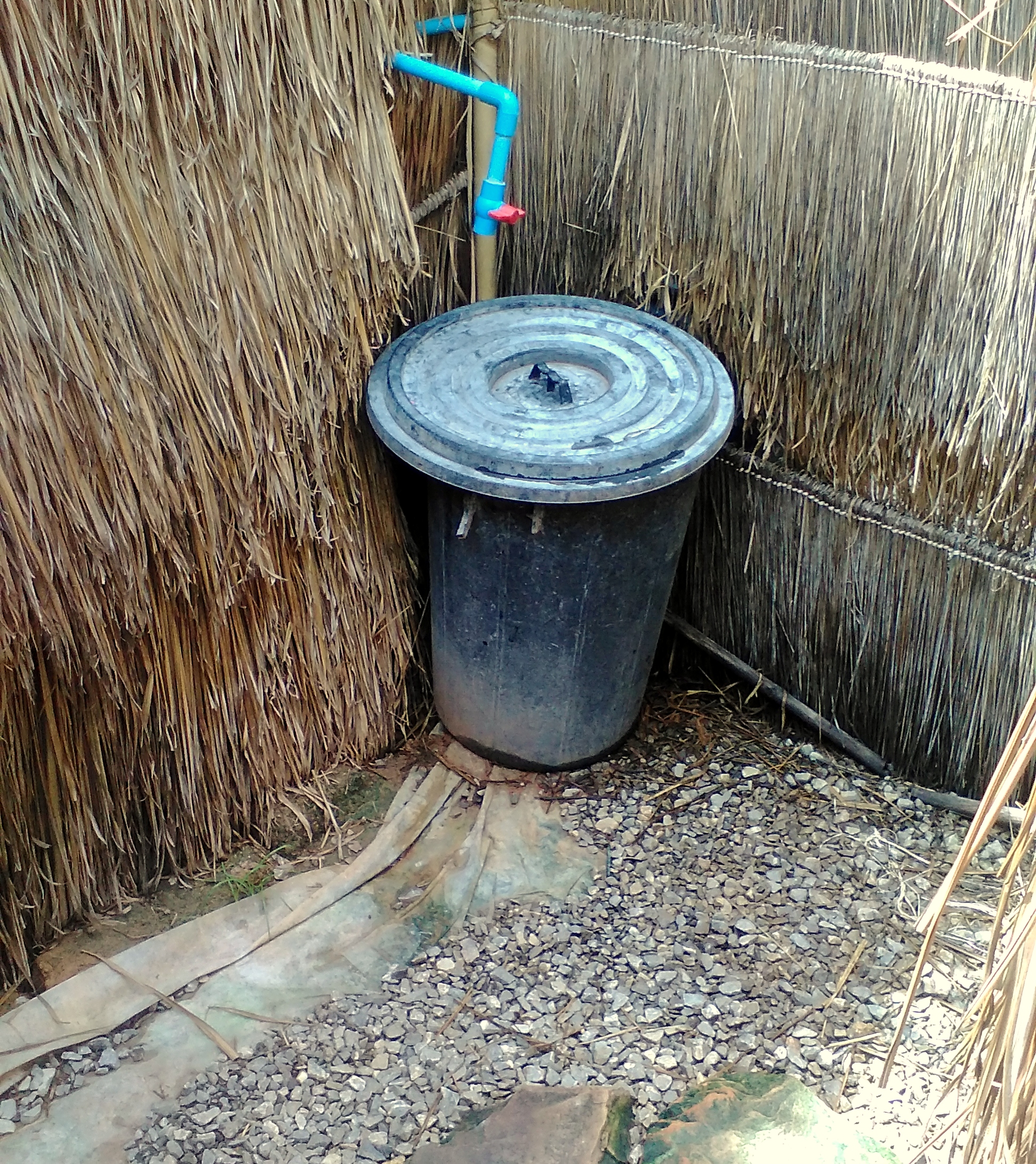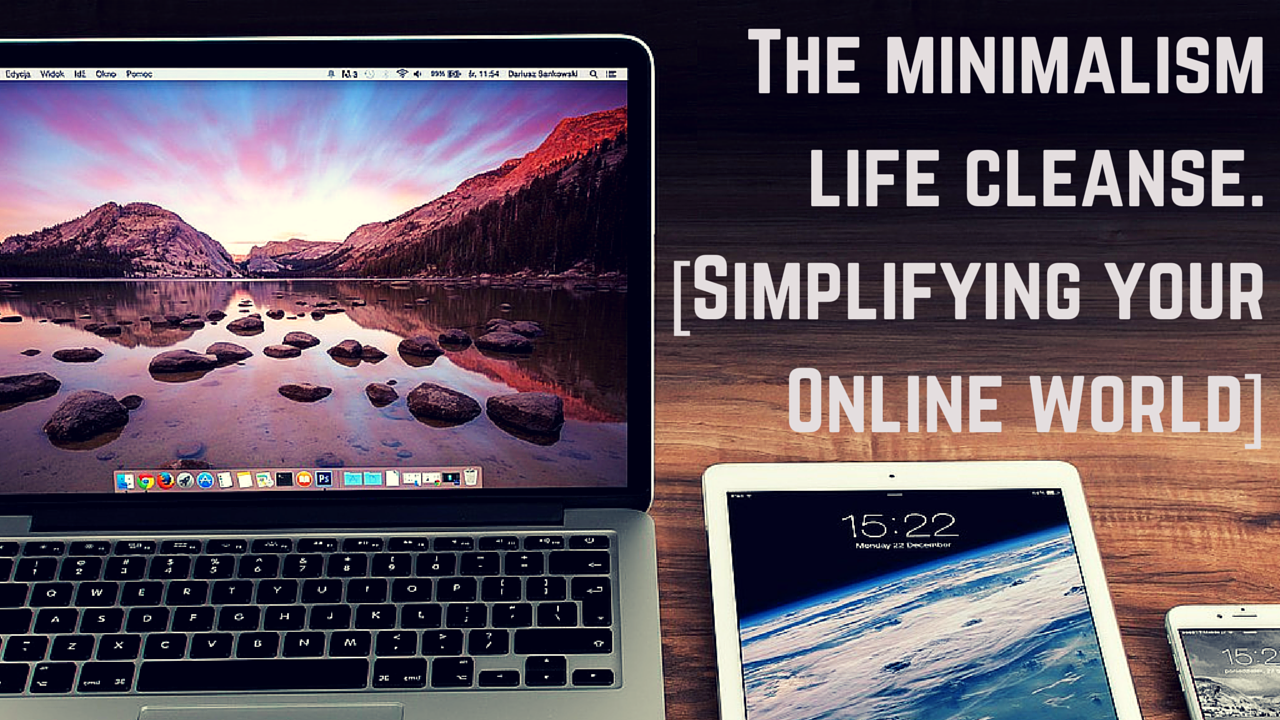
THE BLOG
The Mindfulness Project - An Experimental Community
If you're interested in trying something a little different from the usual backpacking routines then you're gunna want to check this out..
The Mindfulness Project - An Experimental Community
After hearing about The Mindfulness Project in Thailand through word of mouth while I was backpacking around Australia, I knew I had to investigate. When I finally got to Thailand I checked their website and booked myself 10 days at the retreat (the minimum amount of days they require you to pay for on arrival) costing me only 2000 baht.
By staying at this place you will be a volunteer, you pay 200 baht a day for the yoga and meditation lessons and work a few hours in the morning in return for your bed and food.
The work includes a whole range of things from gardening to web design, work is usually from around 9am until 1pm. Working days are usually 4/5 a week with 1 free day and 1 Buddha day every week, sometimes you will spend the day creating and celebrating if anyone is having a birthday.
Each morning starts at 5:30am with one of the volunteers gently waking everyone up with the projects gong, then begins 1 hour of yoga followed by 1 hour of meditation which you are free to sleep through if your not in the mood.
During the morning meeting, anyone who is leaving (or is having a birthday) will sit in the centre of the circle, this is followed by a big group hug! If your not into that kind of thing then your not forced into it, but I do recommend just giving it a go and seeing how much joy it can give you.
Food is prepared twice a day, breakfast and lunch, then the leftovers are eaten for dinner. All the food is either vegetarian or vegan and volunteers are free to come up with whatever they want using what's in the kitchen if that is your daily job.
Like what you see here?
Sign up to the weekly newsletter and get notified of new posts!
During my stay at the project I took part in a monthly visit to a local school to help teach English to the students, if you get the chance to help out during one of these visits don't hesitate as they are limited to around 10 places (the retreat usually homes around 30 volunteers).
There are also weekly visits from a local primary school for basic English lessons, these are fun laid back lessons if your not confident enough to take on the high school just yet!
If you've never tried meditation before then this is a great place to try it, peaceful vibes and quietness, coupled with a no drink/drug policy will help you on your path to enlightenment.
If your interested in learning some valuable building skills then don't be afraid to volunteer for those types of jobs, there will always be someone willing to teach you. Many of the buildings built here have been done so without any power tools, but if you've got a valuable skill you would like to share then make it known and there might be something that the team needs you to do.
The sleeping quarters are basic, a mattress and a mosquito net in a dorm with the whole camp, But I don't have any complaints! The showers are a bucket of cold water, which is extremely refreshing on the days when your working hard in the heat!
If you're interested in trying something a little different from the usual backpacking routines then I'd urge you to look into this kind of thing, there are many different places to go to around the world!
Thanks everyone for having me, I will definitely be back!
If your interested in visiting the Mindfulness Project go here.
Thanks for reading!
Taran here, owner of Nomad'er How Far. I'm fond of psychedelic rock, photography & videography, anything to do with space and I'm also partial to the odd gaming session. Oh and I love to travel :P Get to know me here!
Be social and come follow me across the virtual world!
Latest Articles:
12 Struggles Of Minimalist Beginners And How to Overcome Them
You can feel ready to embrace minimalism, and enthused to change, but some things can hold you back...
12 Struggles Of Minimalist Beginners And How to Overcome Them
So, you are hearing the call of minimalism!
You are being drawn toward living a simpler life, and have recognized the stress and mess that years of accumulation has brought you.
You are ready and willing, committed and enthused. But others around you, not so much...
My minimalism book (based on the popular life cleanse blog series and pictured below) comes from the perspective of someone who has come into minimalism fairly easily. By easily I mean, I was able to adopt the principles without opposition, confusion or derision from others.
Nothing was holding me back from dealing with my spending habits, de-cluttering my home, and changing my relationship with material goods, other than myself.
"I was free to embrace change unencumbered by the expectations or opinions of others."
But that isn't the case for many minimalist beginners...
I am part of a Facebook community full of people at differing stages of their minimalist journey. I have learned from this very supportive and honest space, that many people who are embracing minimalism, are facing a myriad of obstacles along the way.
This became even more apparent when I posed a question to my fellow members:
'What for you, has been the hardest part of embracing minimalism?'
It received 25+ responses and inspired a lot of conversation. I realized then that I clearly had to turn this into a blog post that could support these people or others starting out in minimalism and finding it tough.
There are many different paths individuals follow in life which inspire a negative response, and there are some very difficult journeys to acceptance which people face every day.
This is one vein of that, in this modern age where there is a push for tolerance and equality for people of all different lifestyle choices. This isn't one of those lifestyle choices you would immediately associate with inciting resistance and difficulty, but I have to come to see, it certainly is.
On the broader scale, minimalist ideas have big implications for capitalist society, but, on a smaller scale, people who want to change and lead a more fulfilling life, face the challenge of not being supported by those closest to them, alongside the other struggles of letting go of consumerism.
These are the 12 dominant struggles of my fellow aspiring minimalists from the Facebook community. I imagine others are too experiencing the same:
1. Knowing where to begin. Being overwhelmed by the prospect of simplifying your life, feeling too busy to begin or just unsure where to literally start.
2. Convincing a spouse of the benefits of simpler living. A partner that is either not supportive, not really understanding, or who is tightly holding onto their own materialist ideas and clutter.
3. Getting rid of gifts, or expensive items. Feeling guilt at giving away items someone else spent time or money on, as well as feeling regret at having spent a lot of money on things you now never use.
4. Building and maintaining a healthy attitude to consumerism. Being able to be in a shop and not feel the desire to buy things you don't need. Untying your relationship with shopping as a stress relief or emotional escape. Letting go of pretty and yet useless items.
5. Learning that our worth is not tied up in our possessions. Realizing that our things, the image we try to create with them and the ideas we try to represent, are not intrinsic to our true self-worth and value.
6. Thinking that when you let go of a sentimental object, you the lose the associated memory. Believing that our trinkets and life artefacts somehow keep a memory or experience alive better than we can ourselves, so we feel unable to ever part with any.
7. Pressure from those closest to you to consume. Having family or friends that are avid consumers, who not only normalize consumption but deride you for your rejection of materialist principles.
8. Feeling unable to discard consumables because of a low house-hold budget. Feeling that you can't let go of certain things because you feel like you can't afford to replace them when you might need them.
9. Keeping things 'just in case'. Worrying that we will get rid of something and then suddenly need it. Wanting to keep multiples of something believing it will make life easier in the long-run.
10. Struggling to re-home items, for sale or donation. People either don't show up to buy things, or they just don't sell. Or, you struggle to set aside time to physically remove the items from the home.
11. Having less to choose from. Discarding means you will have less options to choose from each day and so you worry that you might feel bored or limited by what you have kept.
12. Teaching your children about having less. We can actively process our own relationship to our stuff but trying to help our kids de-clutter or feel less desire to that stuff, is a bit more difficult...
There are all the usual obstacles we have to overcome when embracing a minimalist life, from consuming less, to letting go of things, but we can also feel limited by those around us, and the dominant ideologies by which they, and our society, abides.
"Stead-fast consumption, regular impulse spending, and the perception that life is too short to not have exactly what we want no matter the cost."
I think this mindset whilst common and natural for many of us, is short-sighted, and not really sustainable, for our own budgets, and for the wider future of our planet. You too, might agree, as an aspiring minimalist.
I want to posit 5 ideas, that you need to always remember on this path, to help you process and cope with the above 12 struggles.
I want you to recognize that your difficult beginning will become a happy ending.
Then, I will suggest some ideas for how you can communicate with those you feel don't support you, and how you can still pursue this journey without causing damage to your relationships.
Here are 5 ideas to remember during your struggles:
You have already fought half the battle.
Even getting to this point, a place where you want to change your life, and are trying to do so, is a huge deal. I partook in a consumerist and cluttered mentality for most of my life, from my teens into my 20's, but it's also routed in my childhood.
That is a long time of forming habits, and perpetuating unhealthy associations between wealth, possessions and self-worth.
It takes guts to look at our lives honestly and then seek a truthful change, and not just continue on the same destructive path.
In terms of where the hell to start, you have to start small. But first, before that, you have to understand your why.
Why did you find yourself here, seeking something to make your life more fulfilling?
Only when you are fully clear in your reasoning's, will it become clear what you have to do first. For me, it was a mixed process. I knew I was in-debt and also knew that I was desperate to travel.
So, I wrote down all my debts, from smallest to biggest, and I began throwing as much money each month at my smallest debt.
It was then that I actually got super into minimalism, and began de-cluttering my home, by first throwing stuff out of my wardrobe, because that was where the most abundance of clutter was confronting me each day.
I slowly removed things from my bedroom, gradually growing my addiction to discarding, that often comes when you witness the calming effect a less cluttered space creates. I then ramped up my efforts, spending whole afternoons removing things. I then helped my boyfriend do the same. He was motivated because we both wanted to travel and he felt like he didn't want to leave behind material commitments.
Even if travel wasn't our goal, I think he would have been influenced by my change in demeanour; I was motivated to clear debt and so I was also motivated to change my relationship with consumerism, and it made me super positive and enthusiastic in general.
Sign up to our newsletter for updates:
You are living out your truth, and that's always better than living a lie even if it feels easier at the time.
When you stumble upon an epiphany, or you reach a point in your life where you cannot continue to live in the way you have been, you are finding out something very important and special.
You are listening to your inner truth, realizing your fundamental goals and appreciating what you need to do to reach them.
You are opening yourself up to a new way of life and welcoming in positive change thus being authentic to your own intrinsic needs.
If you continue to live how others believe you should, you are lying to yourself, neglecting your purpose, and basing fundamental life choices on the opinions or comments of others and not your own inner voice.
Surely if you are denying your truth to supposedly please them, eventually it will damage your relationships anyway, with your suppressed desires or conformity eventually building resentment.
You will become a living breathing example of the positive ethos of minimalism.
People around you, who advocate consumerist mindsets, or who aren't interested in minimalism, will eventually witness the positive impact of living a simplified life, with less stuff and less push to work, earn and spend. They will get a front-row seat to seeing the cause and effect, and only then, can they truly understand it.
Only then can they too be inspired and maybe consider following the same path. Your peers, children and spouses, are obviously people you love and care about, and whom care about you, but resistance from them, when it involves a change in their own fundamental life choices, is natural.
This isn't something you can preach, but it is something you can live out, and eventually, you will inspire without trying.
You will feel guilt and fear, but not forever.
This is what I love about the simplifying process, and hate at the same time.
You are gonna feel some pains and you are going to want to pull back, delay the process and just, stop. But, once your life has become simpler, and you have committed yourself to reaching particular goals, some emotions, you won't have to encounter again, because you confronted them during this process.
Letting go of sentimental items will feel confusing and upsetting, but once you have taken decisive de-cluttering actions, you won't have to let go of those same things ever again.
Once you have resolved yourself to spend less and accumulate less, you won't have to repeat the letting go process over and over.
"You have to tell yourself, 'I will feel the pain and stress of letting go and discarding now, but I won't have to feel it again, because I won't re-clutter my life again'."
And even if there comes a time where you do in fact need to let go of more stuff, you will have proven that its possible, and you will have survived without those things you originally got rid of.
Discarding items attached to specific memories or special times in your life, takes nothing away from the fact you got to have that experience.
And if by some horrible future scenario, you lose sentimental items, you will move past it and make new memories, as well as have the old ones.
You have to consider that when you strip away the artefact's of precious life moments, the most important things usually still remain e.g. the people and the memories.
Believing that you need to keep things based on some imagined future use, is not a bad thing, when we are trying to lead thrifty lives. We just have to resolve to not bring in more of the same.
We can keep stuff that we truly think will be useful, but we have to specify to ourselves, exactly what that use is:
- Is it a seasonal object?
- Is it one that will replace something else in time?
- Is it something you have multiple versions of, and if so, can you retain just one version?
- Could you better organize these 'just in case' items so that you actually remember you have them when the 'in case' actually happens?
Realistic justifications are not discouraged in minimalist thinking, at all. But sometimes we justify things we know deep down we will not need again or which bring negative vibes into our home, but we are just racked with guilt at our spending, and think that by throwing it out we are being terrible wasteful planet-haters.
But we need to realize that this is it, the point where we make changes that will prevent us being wasteful big-spenders further down the line.
You will
eventually create a fulfilling life that isn't rooted in consumerism
I know this because I was able to do so. I went from in-debt, and addicted to shopping, to being a mindful consumer who was able to make decisions removed from impulse.
I still have moments of weakness but I have accepted that I always will. I have habits and behaviours formed over years, and years, tied to emotional times in my life, so my natural response at times will be to consume, because it is what I have always known. But I don't believe it's ever too late to form new habits.
I brought in a few ideas which I have stuck to for the last 3 years, which keep me debt-free and living within my means (whilst also doing what I love, travelling and writing) unbound by material possession's, which I talk about more in-depth in my book.
Appreciate what is most important at your core. If it is your relationships, and building a life based on special moments with others, having ten million things to tidy each weekend, and a bucket-load of consumerist debt, is going to prevent that happening.
You might literally be stumbling over the results of your consumer choices daily, but you are so used to being surrounded by them, you don't see what is in plain sight. You sometimes need to clear the decks to actually understand why you are dissatisfied or unfulfilled.
Yes, you are used to having multiple options for everything, from your breakfast, to your clothing, but when we reduce the field of choice, to a few quality items, we can actually extract more value and enjoyment from our options. If I have a cupboard full of cereals, or a wardrobe full of clothing of similar styles, and yet I still feel dissatisfied, I probably don't have the right options at my disposal.
I love the concepts of meal planning and having a capsule wardrobe as solutions to these respective issues. I think this allows us to still have options and choices, whilst being thrifty and creative.
Your usual short-cuts to escapism, might not really be feeding your core desires. You may be living a life based in habits you know do not serve you but you feel scared to confront them. When you do confront them however, you soon realize that the only obstacle to your true fulfilment, is you.
You can change certain unhealthy spending habits with some honest appraisal of why you formed them to begin with. When we understand the deeper-seated reason for a behaviour, we can endeavour to change the habit, not just introduce new habits doomed to fail because we aren't accounting for the deeper reasons behind our choices.
You can bring in healthier routines based on mindfulness. Mindful money management is when we know, off the top of our head, our general money situation, be it day-to-day, week-to-week or month-to-month. Mindful spending is when we really question each and every purchase we make, understand the purpose, quality and life-time of the item. You might not be able to increase your income to reach certain financial goals but over time, mindful consuming will make your money work better for you, and of course, prevent future clutter and waste.
More on how I stick to mindful consumption:
Okay, so you have bolstered your self-belief, appreciated what you have already achieved, and placed some faith in the future results of your efforts.
But, ah, you still have to deal with the expectations and opinions of others.
Well, I hope, that in re-affirming your goals for your life, at the centre of your minimalist journey, you will feel stronger and more resolved to change, despite the beliefs of others. But you still need some practical tips on how to counter all the struggles.
1. Be clear of your 'why' to others and resist the urge to try and convert them right away.
When we talk about something that is either seen as a fad or trend, such as de-cluttering and minimalism, you will find a level of initial scepticism, most of the time. If you try to argue with this, and behave defensively, you are likely going to aggravate the situation and bring the person no closer to empathy or understanding.
Instead of coming at our loved ones hard with the notion of simplifying, we need to bring it in gradually.
I know you probably feel all this energy, and naturally you want to get others on board. But they won't believe in the effectiveness of an idea until they see the proof.
- Live out your changes honestly, share them with others if they are making you feel good, but don't posit this as something everyone around you should adopt. Nobody likes to be told that they are living their life wrong or that they are unhappy, when they believe they are. In fact plenty of people around you will not be minimalists, and never will, and will still find the same fulfilment you do. Minimalism isn't the cure for everybody's woes, so resist the urge to prescribe it as the dream drug.
- Use simple language to explain your motivations, like 'I want to save money for...' or 'I want a tidier home...', instead of, 'I am becoming a minimalist, death to materialists!!'. I certainly have strong opinions for why I advocate minimalism over materialism, but for most of my life, I didn't have these opinions, and I didn't want to. I had my consumerism under relative control for a time, and it wasn't until I didn't, that I considered other ideas.
- When people are told of how your previous lifestyle choices were bringing you stress, they will get why you are making drastic changes. They want you to be happy and find a healthy way to do so. Over time they may get to witness the benefits of your new minimalist choices and come to understand it better that way.
2. Try to understand the place from which your spouse/kids/family are coming from.
To them, you have suddenly upped and changed, and maybe you are fervently spouting all these new overwhelming ideas that they haven't come to yet. They too are a sum of their life's habits and history, so go easy on them.
You might feel frustrated or stalled by them and their views, but they need to be given time. They also need to be heard and understood. A partner or friend who continues to spend and acquire, with no intention of de-cluttering, yes, that is going to be difficult to witness and not interfere in. But it's like any difference we ever encounter with those closest to us, we will never all be on the same page about everything.
- Encourage peaceful, open and honest conversation with your loved ones, by truly explaining your desire to change, and why. When others understand your motivation and maybe learn something about you they didn't already know, they are much more likely to keep their scepticism in check.
- Tell them what it is about your current lifestyle that is making you unhappy, and this might make them feel less dismissive of the idea, if they are assured that they aren't suddenly someone you cannot relate to. They just need to understand your 'Why' and try to accommodate it in small ways and recognize that you don't want them to change anything they aren't content with. If they care about you, they should care about your pursuit of true inner happiness, more than your ability to conform with the norms they themselves are used to.
3. Bring your children, partner and loved ones, into the journey, as a pursuit of a mutually beneficial goal.
You can't exactly achieve the minimalist home environment of your dreams if your kids and partner won't budge. You are going to hit a brick-wall in your overall progress at times, even if you have communicated openly and inspired their loving support. The best way to overcome this is a combination of the above two; re-iterating your 'Why' and communicating it gently and over time, but also, by trying to portray de-cluttering and mindful spending, as not something you need them to do, but something that they might actually want to do.
- Create challenges with your loved ones, based on minimalist values. If you suggest the de-cluttering process as being one which will reward them, it will be positive reinforcement that over time may lead to an intrinsic change inside them too. You need to mix your own goals with the inclusion of your family's goals too.
- An example could be that your husband has wanted a holiday abroad for years, but due to frequent random spending or accumulation, you both haven't been able to save up quite enough to do so.
- By suggesting you look at your finances together, to see how you can reach your mutual goals sooner, you will be bringing him in as an active and important part of your journey. You could suggest selling stuff to make some extra income, whilst also de-cluttering, or consider both going on a spending ban. Brainstorm some ideas together to help you achieve mutual dreams, which have the added benefit of involving minimalism.
- Another example might be that your children have reams of toys, many of which they never play with but refuse to part with. You too need to bring them in on this based on your mutual goals. What do they want or desire most in their life at present? Maybe they want to have a million different toy choices, as simple as that. Or maybe they would be willing to share their good fortune with a child who doesn't have what they have by picking some to personally donate.
- Maybe they actually want to get more value of out family life but are so used to the usual daily activities being based around their things, they simply don't know of other options. Maybe they have always been rewarded for their achievements by being given things, and so you will have to go back on your previous re-reinforcements by creating different reward systems. Maybe this can be a lesson in sharing and in having perspective, as well as a way to prevent them always associating toys and things, with their fun or happiness.
I sincerely hope that the above advice goes some way to help you in your struggles as a minimalist beginner.
And I want to re-iterate my very first point, that you have already fought half the battle.
You have chosen to embrace a path where you can carve out a simpler life for yourself and those closest to you. Your honesty, hard work, and the positive results it will yield, will get you through the bulk of the challenges you will face along the way.
Grab your FREE pdf workbook if you didn't earlier. It has a few questions to help you feel empowered to embrace minimalism despite your struggles.
Just sign up to our email newsletter :D
More minimalist reading:
Thanks for reading!
Want more reads like this? You can now find Hannah in her own online space, Good Intentions. Minimalism, mindfulness, conscious living and self-love; all the good stuff centred around being kinder to yourself, and kinder to the world.
Be social and come follow us across the virtual world!
Latest posts:





















